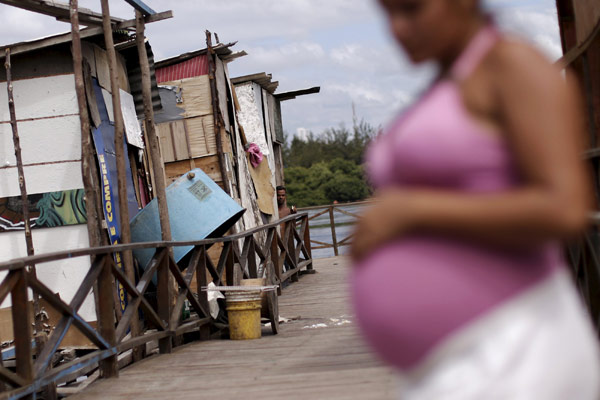Zika virus spreads fear among pregnant Brazilians
(Agencies) Updated: 2016-02-01 05:39
 |
|
Lediane da Silva, who is eight months pregnant, is seen in the shanty town of Beco do Sururu, Recife, Brazil, January 29, 2016. [Photo/Agencies] |
RECIFE - For scores of women in the epicenter of the Zika outbreak in Brazil, the joy of pregnancy has given way to fear.
In the sprawling coastal city of Recife, panic has struck maternity wards since Zika - a mosquito-borne virus first detected in the Americas last year - was linked to wave of brain damage in newborns. There is no vaccine or known cure for the poorly understood disease.
In about four-fifths of cases, Zika causes no noticeable symptoms so women have no idea if they contracted it during pregnancy. Test kits for the virus are only effective in the first week of infection and only available at private clinics at a cost of 900 reais, more than the monthly minimum wage.
At Recife's IMIP hospital, dozens of soon-to-be mothers wait anxiously for ultrasound scans that will indicate whether the child they are carrying has a shrunken head and damaged brain, a condition called microcephaly. The hospital has already had 160 babies born there with the deformity since August.
"It's very frightening. I'm worried my daughter will have microcephaly," says Elisangela Barros, 40, shedding a tear behind her thick-rimmed glasses. "My neighborhood is poor and full of mosquitoes, trash and has no running water. Five of my neighbors have Zika."
Women like Barros, who live in crowded, muddy slums of Brazil's chaotic cities, have little defense against the Aedes aegypti mosquito that carries Zika, as well as other diseases such as dengue and yellow fever. They often cannot afford insect repellent and have little access to family planning.






